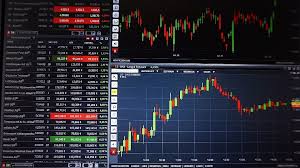
When it comes to Forex trading, understanding the tax implications is crucial for maximizing your profits. This is where a Forex trading tax calculator comes into play. A well-structured tax calculator can help you navigate the complexities of tax regulations associated with your trades. Moreover, investors using forex trading tax calculator Nigerian Trading Platforms can utilize these tools to ensure compliance with local tax laws while reaping the benefits of Forex trading.
The Basics of Forex Trading and Taxes
Forex trading, often referred to as currency trading or FX trading, involves buying and selling currencies on a global marketplace. Traders aim to profit from fluctuations in currency exchange rates. However, profits generated from Forex trading are subject to taxation, which varies by country and jurisdiction. Understanding these tax obligations is essential for traders to minimize their tax liabilities legally and maximize their net returns.
What is a Forex Trading Tax Calculator?
A Forex trading tax calculator is a specialized tool designed to help traders calculate their tax liabilities based on their trading activities. This tool takes into account various factors, including profit and loss, trading frequency, and tax rates applicable in your region. It simplifies the process of determining how much tax you owe and can improve your financial planning as a trader.
Why You Need a Forex Trading Tax Calculator
There are several reasons why utilizing a Forex trading tax calculator is beneficial:
- Accuracy: Calculators can provide accurate tax liability estimates based on detailed inputs, reducing the risk of errors in manual calculations.
- Time-Saving: Instead of sifting through complex tax regulations and forms, traders can quickly input their data and receive a clear summary of their tax situation.
- Tax Optimization: A well-designed calculator can help you explore different scenarios, enabling you to optimize your trading strategy for tax efficiency.
- Compliance: Staying compliant with tax laws is crucial to avoid penalties. Using a tax calculator can help ensure you report your earnings correctly.
How to Use a Forex Trading Tax Calculator
Using a Forex trading tax calculator typically involves a few simple steps:
- Gather Your Trading Data: Collect all relevant information about your trades, including entry and exit prices, volume, and the dates of each transaction.
- Input Your Data: Enter your trading data into the calculator. Many online calculators will require specifics such as the currency pair, profit or loss, and the frequency of trades.
- Submit for Calculation: After entering the data, submit it for computation. The calculator will process the information and provide you with an estimate of your tax liability.
- Review the Results: Analyze the report generated by the calculator. This should detail your profits, losses, and the calculated tax amount based on your inputs.
Factors Influencing Forex Trading Tax Calculation
Several factors influence how taxes are calculated for Forex trading.
1. Tax Jurisdiction
The country where you reside and trade can significantly affect your tax treatment. Each country has its own tax regulations; some may offer favorable tax rates for capital gains, while others might tax Forex earnings as ordinary income.

2. Trading Frequency
Casual traders may be treated differently from professional traders or those carrying out high-frequency trading. If classified as a professional trader, you might benefit from more favorable tax rules.
3. Holding Periods
How long you hold a trade can also influence tax rates. Short-term trades might be taxed at a higher rate compared to long-term investments, depending on your jurisdiction’s rules.
4. Losses and Deductions
Losses incurred from trading can often be used to offset profits. Understanding how to correctly apply losses in your calculations can lead to significant tax savings.
Common Mistakes to Avoid
While using a Forex trading tax calculator, be mindful of these common pitfalls:
- Inaccurate Data Entry: Ensure all data entered is accurate and complete to avoid misleading calculations.
- Ignoring Local Tax Laws: Always refer to local regulations as tax laws can vary widely across jurisdictions.
- Overlooking Deductions: Be aware of potential deductions you may qualify for, as overlooking them can increase your tax liability unnecessarily.
Choosing the Right Forex Trading Tax Calculator
With numerous tax calculators available, choosing the right one can be challenging. Here are some tips to ensure you’re selecting a reliable calculator:
- User-Friendly Interface: Select a calculator that is easy to navigate and understand.
- Comprehensive Features: Look for tools that provide analysis for various trading scenarios and tax strategies.
- Updates for Tax Law Changes: Ensure that the calculator is regularly updated to reflect the latest tax regulations.
- Customer Support: Good calculators should offer guidance or support for users needing assistance.
Conclusion
A Forex trading tax calculator is an indispensable tool for any trader looking to manage their tax responsibilities effectively. By understanding your obligations and leveraging the right tools, you can maximize your trading profits while ensuring compliance with tax regulations. Whether you are trading on Nigerian Trading Platforms or any other global markets, taking control of your tax situation will allow you to focus more on trading and less on the complexities of taxation.
Recent Comments